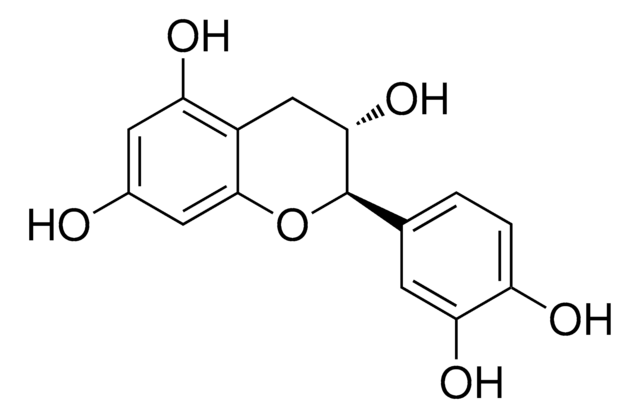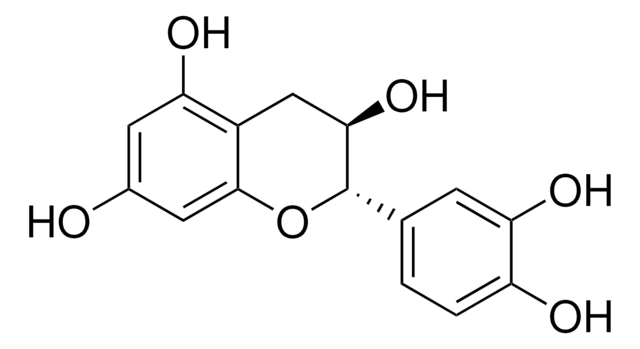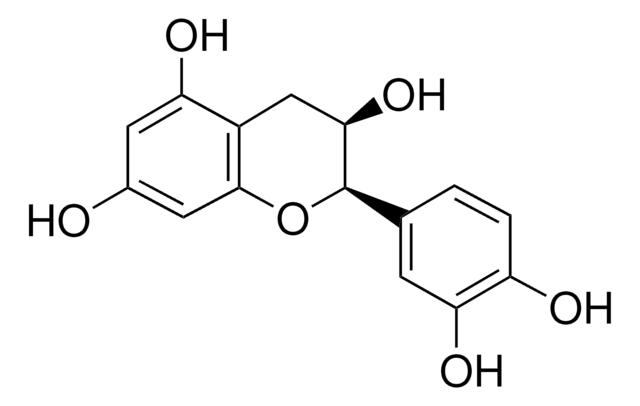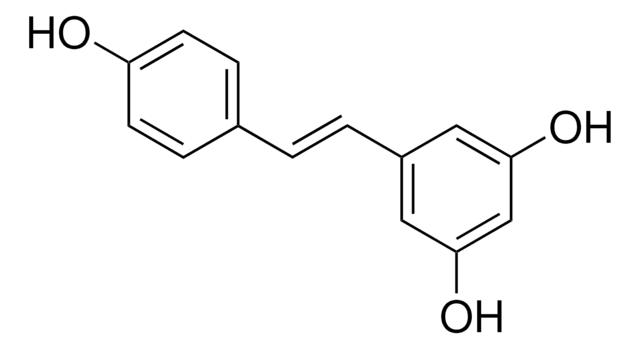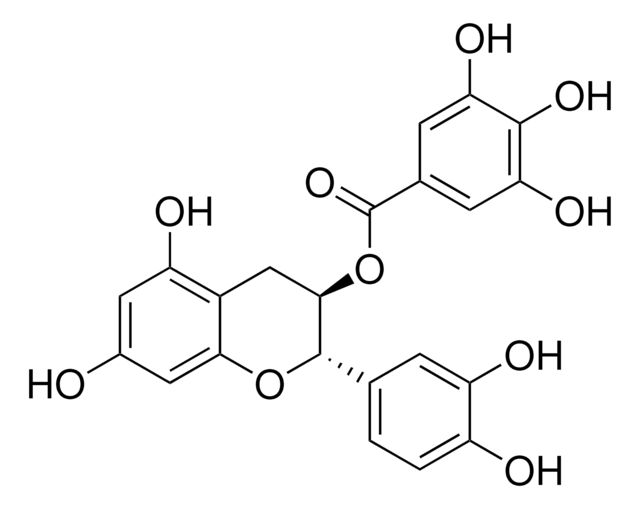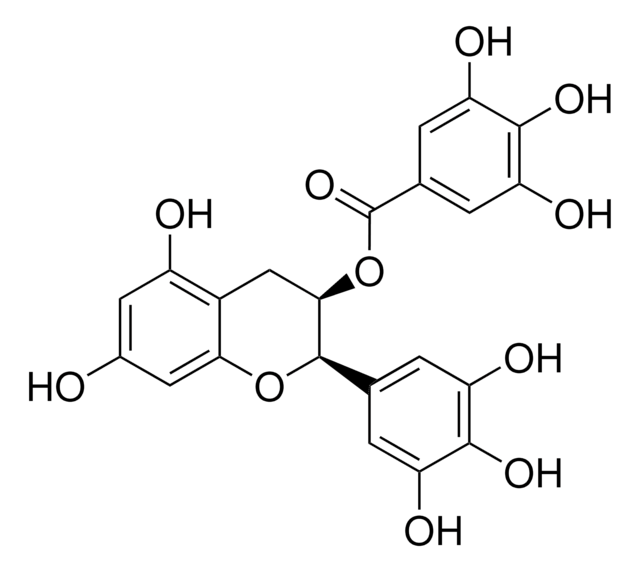C1788
(±)-Catechin hydrate
Synonym(s):
trans-2-(3,4-Dihydroxyphenyl)-3,4-dihydro-1(2H)-benzopyran-3,5,7-triol, trans-3,3′,4′,5,7-Pentahydroxyflavane
About This Item
Recommended Products
Assay
≥96% (HPLC)
Quality Level
form
powder
technique(s)
HPLC: suitable
color
white to light brown
mp
200 °C (decomposes on heating)
storage temp.
2-8°C
SMILES string
[H]O[H].O[C@H]1Cc2c(O)cc(O)cc2O[C@@H]1c3ccc(O)c(O)c3
InChI
1S/C15H14O6.H2O/c16-8-4-11(18)9-6-13(20)15(21-14(9)5-8)7-1-2-10(17)12(19)3-7;/h1-5,13,15-20H,6H2;1H2/t13-,15+;/m0./s1
InChI key
OFUMQWOJBVNKLR-NQQJLSKUSA-N
Looking for similar products? Visit Product Comparison Guide
General description
Application
- to study its modulatory effect on drug resistance in human ovarian cancer cells
- to construct the standard curve of total flavonoid content
- to study its effects on the physiological parameters of Solanum lycopersicum
Biochem/physiol Actions
Signal Word
Warning
Hazard Statements
Precautionary Statements
Hazard Classifications
Eye Irrit. 2 - Skin Irrit. 2 - STOT SE 3
Target Organs
Respiratory system
Storage Class Code
11 - Combustible Solids
WGK
WGK 3
Flash Point(F)
Not applicable
Flash Point(C)
Not applicable
Personal Protective Equipment
Regulatory Listings
Regulatory Listings are mainly provided for chemical products. Only limited information can be provided here for non-chemical products. No entry means none of the components are listed. It is the user’s obligation to ensure the safe and legal use of the product.
JAN Code
C1788-500MG:
C1788-1G:
C1788-5G:
C1788-VAR:
C1788-BULK:
Choose from one of the most recent versions:
Already Own This Product?
Find documentation for the products that you have recently purchased in the Document Library.
Customers Also Viewed
Our team of scientists has experience in all areas of research including Life Science, Material Science, Chemical Synthesis, Chromatography, Analytical and many others.
Contact Technical Service
